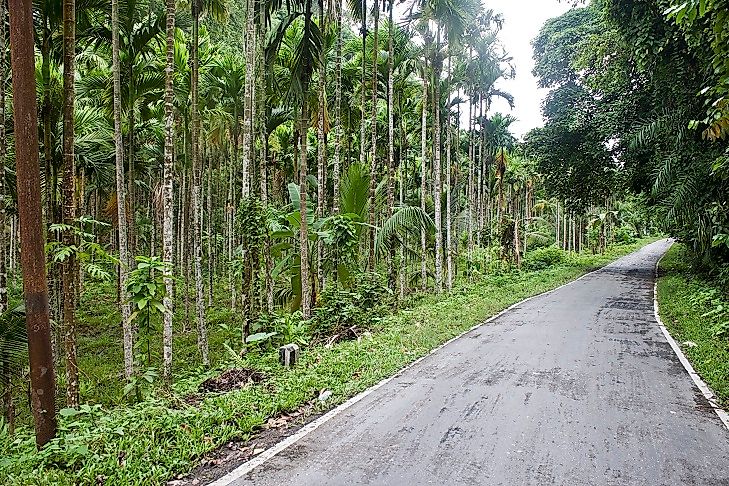Who Are The Jarawa People?

5. Location and Population Size
These indigenous Andamanese islanders have long remained isolated from the rest of the world. The Jarawa people belong to the pygmy peoples of Asia. They have the same attributes as other Negrito tribes, and are mostly hunter-gatherers. Jarawas first populated the Andaman Islands in the Bay of Bengal around 26,000 years ago. The first foreigners to have made contact with the Jarawa people in the 18th Century found there to be around five Jarawa tribes with a total population of about 7,000 Jarawas living in the Andaman Islands at that time. However, today only around 400 to 450 Jarawas are left. Outside contact brought diseases that killed a majority of these people in the 19th Century, and a more recent outbreak of measles has further diminished their numbers.
4. Language
The Jarawa tribes of the Andaman Islands each speak a different language. As a result, they do not understand each other, although they presumably all descended from one original tribe called the Jangil. In 1931, the last of the Jangil people died in the Andamans and, today, are considered extinct. The Jarawa people speak languages that belong to the Ongan and Great Andamese family of languages. A unique language has been identified among the as well, and given the name of Sentinelese. However, these tribes have long refused contact with any outsiders. A number of linguists think that the Jarawa languages are related either to the Papuan languages or the Austronesian-Ongan family of languages.
3. Ways of Life
The Jarawas were originally very hostile to outsiders, and would kill any who ventured into their territory. Today, however, they are more relaxed in the company of outsiders. The Jarawas have lived in the Andaman region for thousands of years, and have retained their ways of life as hunter-gatherers. They use bows, arrows, and wooden harpoons to hunt the fish, turtles, and wild pigs sharing their habitats. They also love honey, which they collect by climbing tall trees. The recent bad influence of tourists and drivers who enter in close to their ancestral lands in the Andaman has changed their existence. Now, many Jarawas are begging for food from these intruders.
2. Outside Contact
The 19th Century brought close contact with the British, who established settlements in the Andaman. Along with the outsiders came diseases, alcohol, and opium. Indian and Burmese settlers also settled in the islands, though the Jarawas were always hostile to these intruders. However, in 1998, the Jarawas started initiating friendly contact with the settlers living close to their lands. The construction of the Andaman Trunk Road in the 1970s increased outside contact with tourists and other settlers. However, this also brought more diseases and trouble to the Jarawas. Alcohol, marijuana, and sexual abuses by outsiders have worsened the plight of the Jarawas. The Indian government has looked into the matter, especially after complaints from local Indian pro-Jarawa organizations were filed with the Calcutta High Court.
1. Ongoing Threats
Today, the threats to the Jarawa people are being fought in the Andaman Islands and the courts of Calcutta, which have jurisdiction over the Andaman Islands. The tourists who are being brought in by agencies for human sightseeing safaris involving the Jarawas are prohibited, but nothing has been done about it. A resort was recently built near the Jarawa ancestral lands, but the court case was won in favor of the resort owner. There has been an increase of animal poaching in the Jarawa hunting grounds by outsiders, and illegal land settlements on Jarawa ancestral lands as well. These violations have affected the food sources of the Jarawa people, but the courts have done little to stop these illegal activities.











